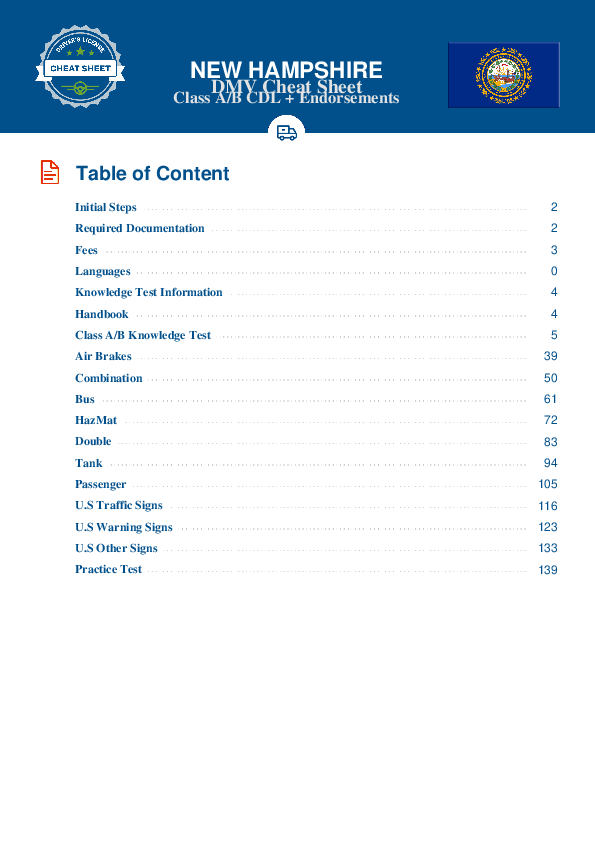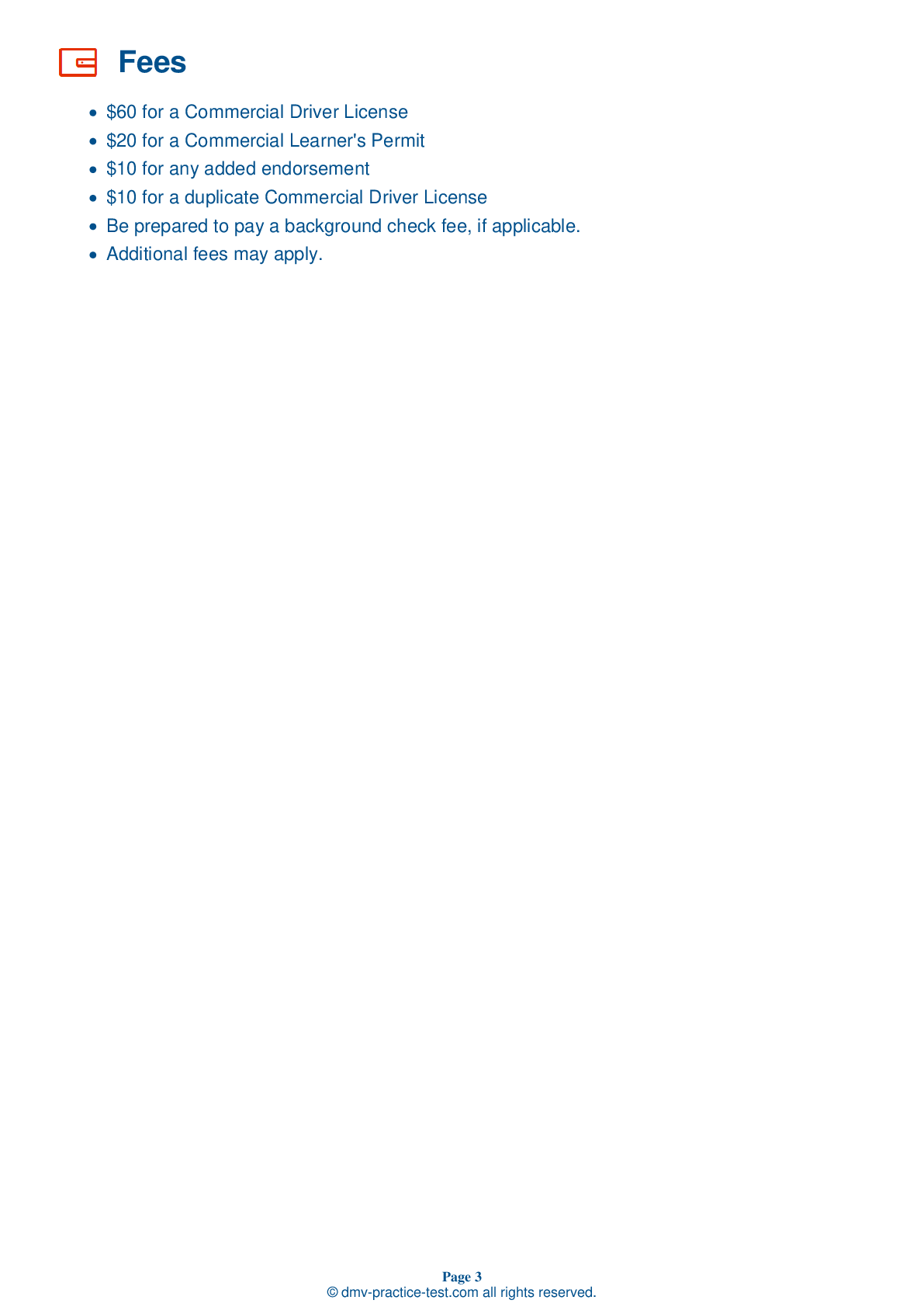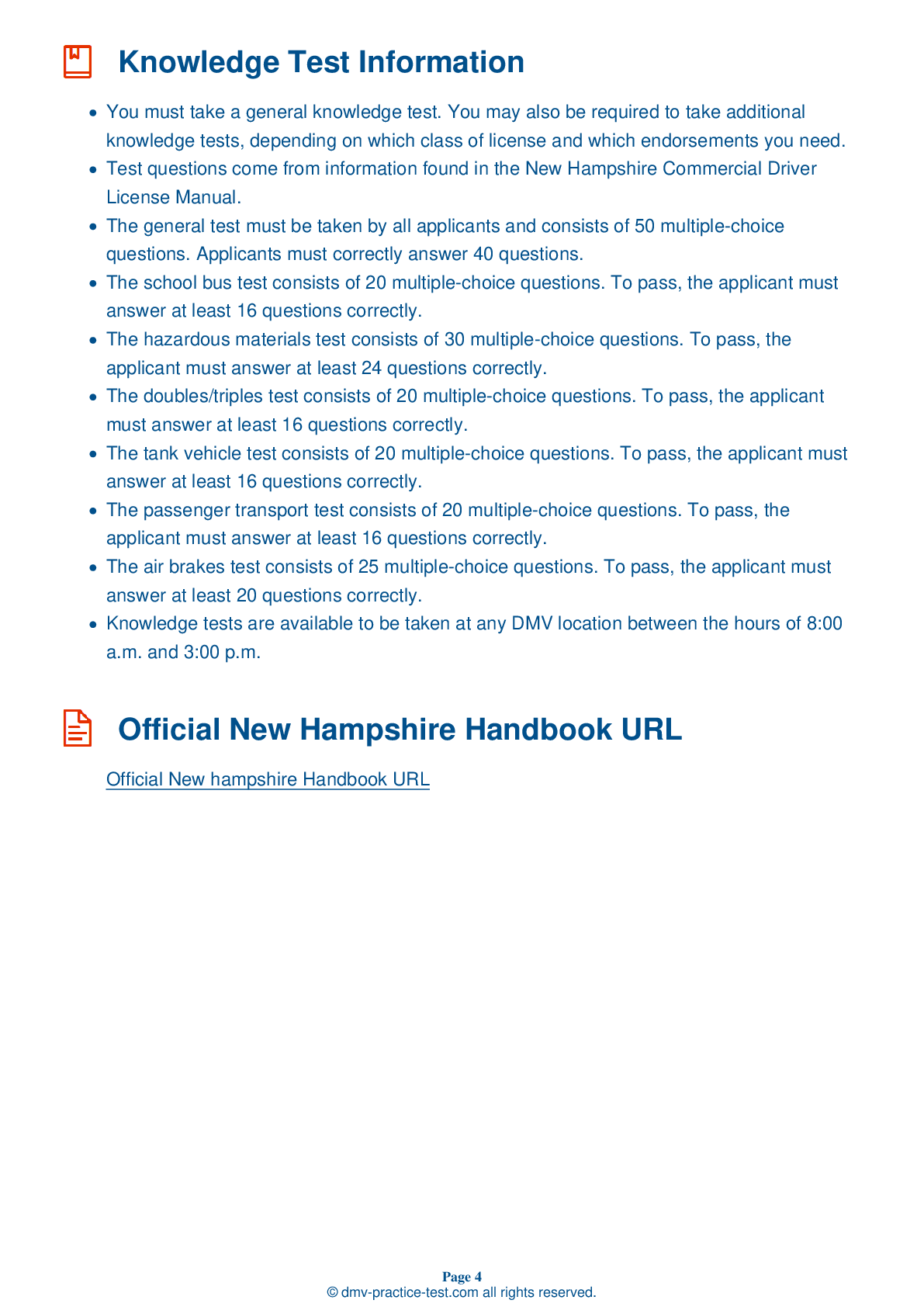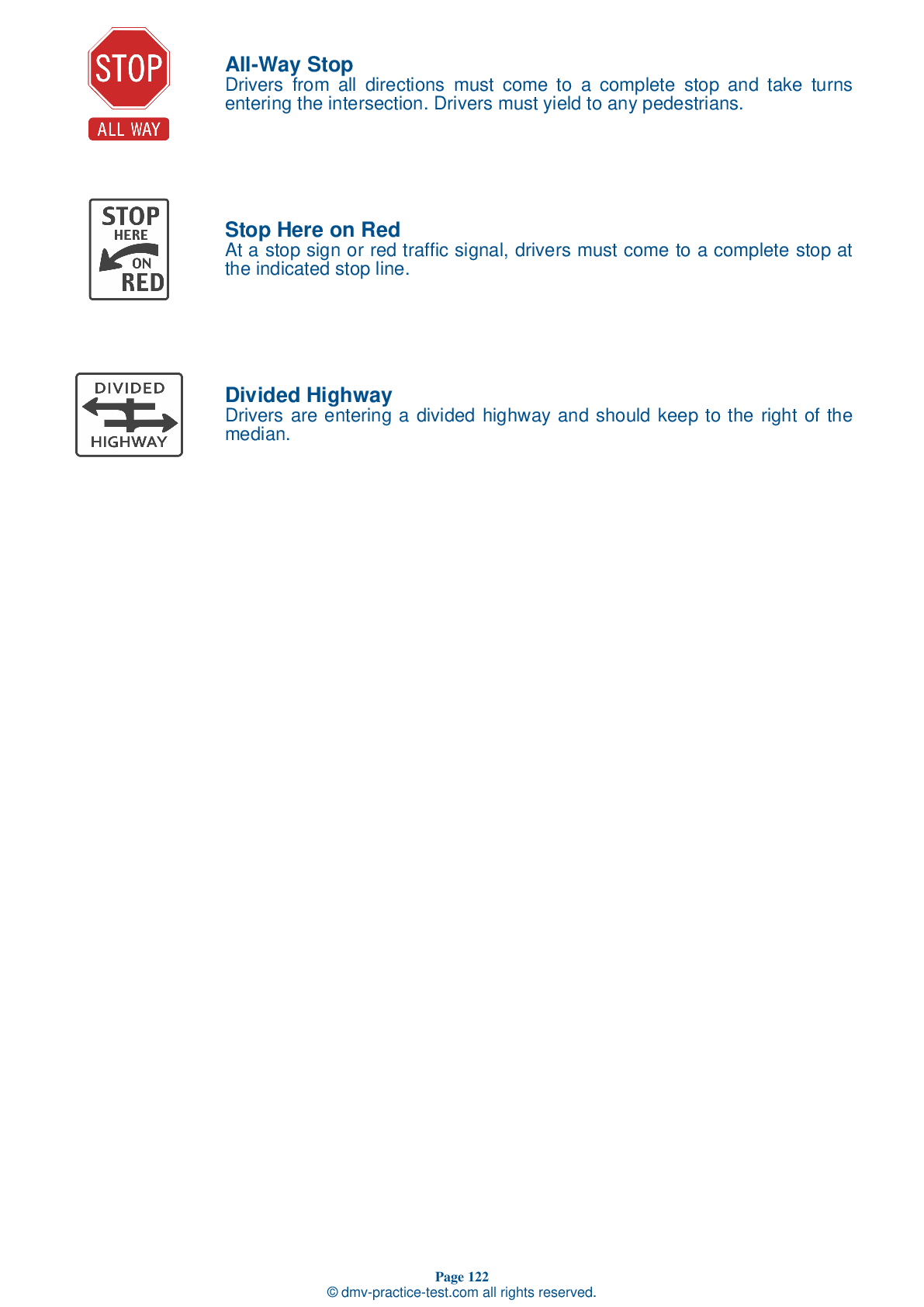Air Brakes Endorsement Test | New Hampshire 2026 #1 Page 4 of 4
Train for FREE online with our New Hampshire CDL air brake test. The official exam test consists of several obligatory parts, with all of them checking your knowledge of different blocks of road rules. If you need to obtain a NH Class A/Class B driver license in 2026, practice as much as possible. Free sample tests published on our website will help you check and improve your knowledge and boost your grades. Please bear in mind that the requirements for CDL may vary from state to state.
19 . Do not use the parking brake when parking if:
A parking brake should not be used if the vehicle's brakes are very hot from use on a steep downgrade or if the brakes are very wet and temperatures are freezing. Using the parking brake when brakes are hot could cause damage to the brakes, and using the brakes when they are wet in freezing weather may cause the brakes to ice up, rendering the vehicle immobile.
20 . During an applied leakage test, the maximum leakage rate for a triple combination vehicle is ____ in a minute.
It is important to know the maximum air loss rate that is safe for your specific vehicle. A triple combination should have a leakage rate no higher than 6 psi in a minute during an applied leakage test.
21 . Emergency brakes are:
All trucks, truck tractors, and buses must be equipped with emergency brakes and parking brakes.
22 . A slack adjuster should move no more than ____ from where it is attached to the push rod.
Before a trip, you should check each slack adjuster after parking, setting wheel chocks, and disengaging the parking brake. Pull the slack adjusters to make sure that they do not move more than about one inch from where the push rod is attached. If they move more than one inch, they may be out of adjustment and will need to be fixed.
23 . In a vehicle with dual parking control valves, a separate air tank can be used:
In a vehicle with dual parking control valves, there is a separate air tank that can be used to temporarily release the spring brakes if they have been activated due to low air pressure. Pushing in the proper control will release the spring brakes for a short period of time, allowing the driver to move the vehicle in an emergency.
24 . If you’re driving and the ABS warning light comes on, it means:
Vehicles with Anti-Lock Braking Systems (ABS) have yellow malfunction lights to alert the driver if something is wrong with the braking system. If these lights activate, the driver may have lost ABS on one or more wheels.
25 . Why do large vehicles use air brakes?
If used and maintained properly, air brakes are a safe and effective way to stop large, heavy vehicles.
See the exact questions that will be on the 2026 New Hampshire DMV exam.
99.2% of people who use the cheat sheet pass the FIRST TIME
Lillian MCcranie explains how our CDL study guide was helpful in passing the exam and recommends it to everyone.
Cameron tells us how he purchased the CDL exam, and found it to be a useful tool which helped him pass the exam and find a job.



